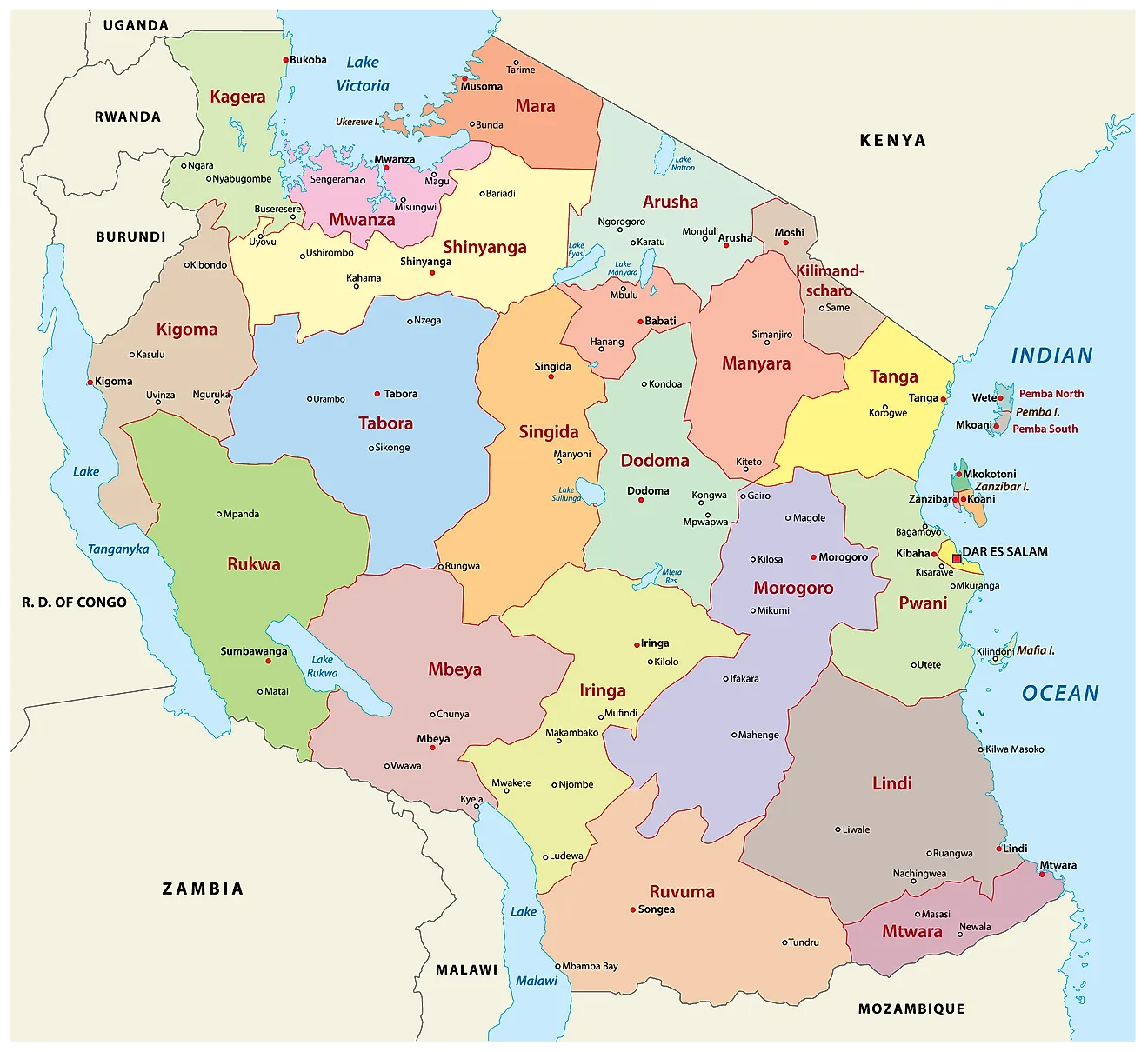Tanzania and Kenya Unite to Tackle Illegal Wildlife Trade

Tanzania and Kenya Lead Joint Efforts to Strengthen Digital Public Infrastructure
Tanzania and Kenya have taken a significant step forward in addressing the complex challenges of human-nature conflicts across Africa. The two nations have announced a joint initiative to champion digital public infrastructure (DPI) and establish a regional command and control center aimed at tackling these pressing issues. This move aligns with the Lusaka Agreement, which has been instrumental in fostering cooperation among African countries to combat illegal wildlife trade and related environmental crimes.
The Lusaka Agreement, officially known as the Lusaka Agreement on Cooperative Enforcement Operations directed at Illegal Trade in Wild Fauna and Flora, was signed in 1994 in Lusaka, Zambia. It is administered by the Lusaka Agreement Task Force (LATF), an organization that plays a crucial role in enforcing the treaty and ensuring its objectives are met.
During a recent high-level event held in Yokohama, Japan, as part of the TICAD 9 conference, both countries emphasized the urgency of integrating digital tools and regional collaboration to address environmental crimes more effectively. Dr. Pindi Chana, Tanzania’s Minister for Natural Resources and Tourism and current President of the Lusaka Agreement Governing Council, highlighted the importance of this approach.
"Digital tools and regional cooperation will allow us to detect, prevent, and respond to environmental crimes more effectively, safeguarding both livelihoods and biodiversity," she stated. Her Kenyan counterpart, Rebecca Miano, Cabinet Secretary in the Ministry of Tourism and Wildlife, echoed similar sentiments, emphasizing that human-nature conflict is not just a conservation issue but also a development, security, and governance challenge.
Edward Phiri, Director of the Lusaka Agreement Task Force (LATF), pointed out that illegal wildlife trade, land pressure, and climate-driven conflicts are interconnected challenges that require a coordinated response. He stressed the need for Africa to leverage digital public infrastructure and create a Regional Command and Control Centre to connect enforcement, conservation, and development sectors in real time.
The agreement comes in response to the increasing scale and complexity of human-nature conflicts across the continent. These include habitat loss, poaching, illegal wildlife trade, agro-pastoral tensions over dwindling grazing land and water, and land-use changes driven by rapid population growth and expanding commercial agriculture. These pressures are taking a heavy toll on governance systems, the economy, and the environment.
According to the two countries, Kenya alone spends approximately $7 million annually compensating victims of human-wildlife conflict, while poaching and illicit wildlife trade continue to erode biodiversity and undermine tourism across Africa. Climate change further exacerbates these challenges, accelerating habitat degradation and intensifying competition for scarce resources. Additionally, the documentation of such conflicts remains inconsistent and fragmented.
One of the key barriers to effective action is the absence of systematic data compilation and effective cross-border information sharing. This is compounded by the fact that conflicts cut across multiple ministries and require a seamless, integrated response.
President of the Remote Sensing Technology Center of Japan (RESTEC), Kename Ikeda, reiterated RESTEC's support for African countries in capacity development and the implementation of Digital Public Infrastructure (DPI). By leveraging remote sensing technology and satellite observed data, RESTEC aims to address human-nature conflicts through evidence-based interventions.
Building on six years of dedicated research and innovation in satellite remote sensing, artificial intelligence, and geospatial cloud computing, RESTEC has contributed to key initiatives, including the 2019 Pan-Africa Conference and TICAD 7 and 8 side events. These efforts have led to the development of a command-and-control centre concept.
Founded in 1994 under a UNEP-led initiative, the Lusaka Agreement Task Force (LATF) serves as the Secretariat and enforcement arm of the Lusaka Agreement. Comprising six active member states and three signatories, LATF is a multilateral enforcement body in Africa mandated to conduct transboundary operations against wildlife and other environmental crime.
In partnership with its member states and global collaborators, LATF is spearheading the establishment of a Regional Command and Control Centre and Digital Public Infrastructure (DPI) to address the urgent, continent-wide need for coordinated, data-driven responses to escalating threats, including human-wildlife conflict, cross-border poaching, agro-pastoral disputes, and environmental degradation.

Comments
Post a Comment